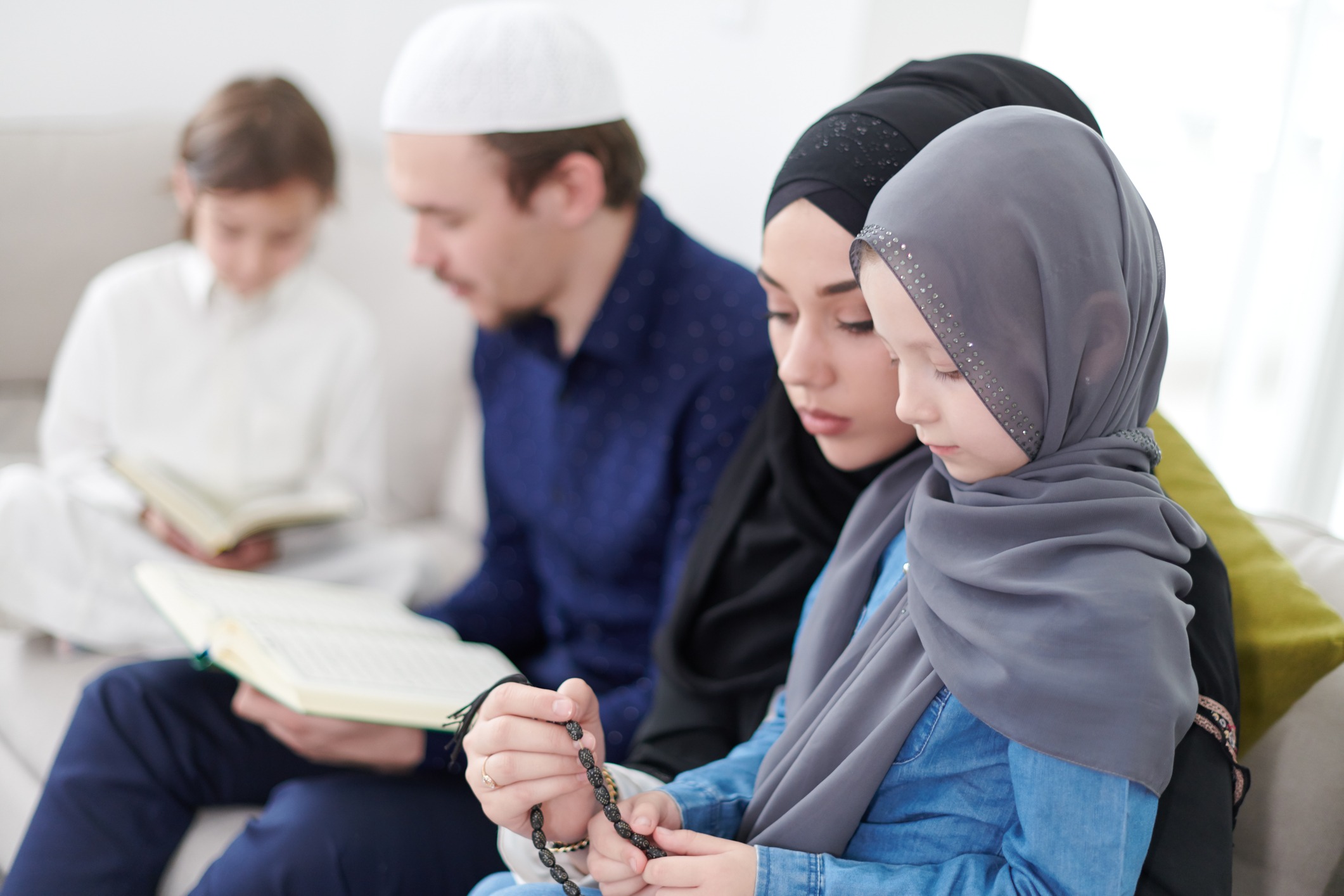7 basic principles for raising children in a non-Muslim country
Raising children anywhere in the world is clearly a challenge in today's highly connected and visual world. But being a Muslim and raising children in a non-Muslim country can be quite difficult and upsetting at times. You most likely grew up in a non-Muslim country and find that it is a matter of balance and getting priorities in order.
What's important should always come first and you'll find that everything else will just fall into place. Faith also plays a big role, I believe. So all you young Muslim educators and caregivers out there, living in a world that has shrunk thanks to technology, have no fear. Just remember your values and what your parents did to raise you and adjust things a little, and I'm sure the whole process of raising children will become a little easier. However, to put your mind at ease, here are 7 tips to guide you through raising children in a non-Muslim country.
1. Teach your children the basic principles of Islam at home from an early age
Children will only know what Islam is if you as an educator and caregiver teach them about Islam. So teach your children the principles and practices of Islam from an early age. For example, what is halal and haram, what is considered right in Islam and what is considered wrong. You don't have to grill them, but make sure they understand there is a difference.
For example, one of the most important aspects of living in a non-Muslim country is avoiding foods that are haram and making sure we eat foods that are halal or permitted in Islam. So, through actions and words, make them realize the differences and make them understand that even if their friends eat certain foods that are haram, it is important that we know our limits as Muslims and avoid these foods.
Moreover, start teaching Islam to your children at home. You as an educator and caregiver have this basic knowledge, use it and teach it to your children. For children who still can't read, download a Quran recitation or take a CD and play it for them for 15 minutes every day.
2. Send your children to Madrasa (religious school)
The study of Islam in the atmosphere of a school in a nice classroom with children of the same faith with the same norms and values is of crucial importance. There are so many things to learn in the Islamic religion and this is virtually impossible to do at home. Today, most countries with Muslim populations organize religious classes for the children of the community. So make time for it, give Madrasa the same importance to a regular school and make sure you send your child there.
Attending a religious school not only gives your children a strong foundation of the concepts and practices of Islam, in addition to learning to recite the Quran, recite dua and perform the 5 daily prayers, but it will also equip them to communicate with other Muslim children and give them the opportunity to make friends for life.
3. Meet regularly with family and community members
Meetings with family and the Muslim community can form and create better understanding and acceptance. Children will observe people's interactions and actions, and through such gatherings they can experience the camaraderie and closeness of the community for themselves. When they eat together, they will also learn that others also practice in the same way as their parents, and this makes children more accepting of such provisions. Admittedly, sometimes the older child may find it a little embarrassing to ask whether the ingredients in the food they have ordered at restaurants are all halal, and when they see others doing this, they will realize that it is not an unnecessary fuss, but an accepted practice.
4. Attend Islamic festivals and events
Attending Islamic events such as Eid, going to the mosque during the month of Ramadan, attending Islamic events, etc., and taking the kids along can be a great learning experience. This also helps children understand that these days are important and should be treated as such. As they get older, children will have many different things pulling them in different directions. When children attend such events, they will realize that it is important to go to the mosque during Ramadan and that it is also important to attend Eid prayers.
5. Listen to your children
It is very important for educators and caregivers to listen to what your children say. When children come home from school and talk about their day and what happened at school, please listen, no matter how busy or tired you are. Listening to children talk about their day can provide insight into what his/her opinion is about what someone (even friends) did at school.
Parents can also gain a better understanding of the other children your child interacts with. Listening to your children can provide parents with the opening needed to bring up certain topics or guide your children in the right direction. Listening is not just for Muslim parents in non-Muslim countries, but for all parents worldwide!
6. Talk to your children
Talking is just as important, especially as your children get older and become more exposed to the internet and everything else in the world. By talking to children, parents can become closer to their children and children can ask their parents questions. Nowadays the world has become an open place and children are very curious from an early age. There is no such thing as a “taboo subject”. Parents should encourage their children to talk to them about anything and everything. How else will you know how your children think or view a particular topic or scenario? Knowledge is power, and only when children know that something is not acceptable to be a Muslim, even if it is acceptable to the parents of their non-Muslim friends, can you give your children the opportunity to follow the right path.
7. Finally (but most importantly), live and practice what you preach
Teaching your children about Islam is great, but as a parent you have to practice what you preach. For example, if you teach your child that prayer is important five times a day, make sure your children see you praying at home. Let older children pray with you. For those who are still learning their wudu, make sure you make them perform wudu as a prerequisite for the prayer.
If you want your child to recite the Quran daily, then you must recite the Quran yourself daily - in fact, if you have small children who still can't read, sit them next to you when you recite the Quran and let them watch you listen. If you eat out, make sure your child knows it is halal, ask the waiter in front of your children. These actions will show your children the importance you place on the teachings and practices of Islam and, in turn, instill these practices in them.
A few tips on 'what not to do'...
While it is important to teach your children about Islam, its practices, its edicts and its rights and wrongs (halal and haram), it is also important that you DO NOT:
• Used violence while teaching them about Islam.
• Give your children the impression that what followers of other religions do is wrong (just explain that what we, as Muslims, do is different because we believe in something different)
• Explains and teaches your children in such a way that they become afraid of the teachings of our beautiful religion, Islam





